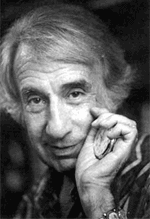
|
|
Birthdate
December 4, 1910
Country of origin
United States
Web site
www.alexnorthmusic.com/
Biography
Born in Chester, Pennsylvania, USA.
Died on 8 September 1991 in Los Angeles, California, USA.
Renowned composer Alex North shunned publicity and Hollywood careerism. But he nonetheless accumulated 15 Oscar nominations and a Lifetime Achievement Oscar for his work in the film industry. On the 10th anniversary of his death, North's work in ballet, theater, symphony orchestra, television, and motion pictures continues to stand up to the toughest metric -- time.
The world-famous Gewandhaus Orchestra and Hollywood Bowl have played North's music in concert many times over the past several years. His hit single, Unchained Melody, from the 1955 movie Unchained, has been recorded over 500 times by artists ranging from the Righteous Brothers to Elvis Presley, LeAnn Rimes, Sarah Mclachlan, John Lennon, and James Galway. And North's epic symphony Africa, originally composed for a documentary film in 1967, has just been re-released.
North's daring and emotional integrity can be felt in his music and is reflected in his life choices. His early years in Chester, Pennsylvania, were not easy. North's mother took in borders to make ends meet after his blacksmith father died. Though times were lean, the household was filled with music, and North's extraordinary musical talent earned him scholarships and invitations to study at the Curtis Institute, the Julliard School of Music, and the Moscow Conservatory of Music.
From 1932 to 1940, North studied with renowned composers around the globe, including Anton Weprik, Victor Bielyi, Silvestre Revueltas, Aaron Copland, and Ernst Toch. During these years he was the music director of the Latvian State Theatre and he taught at Bennington, Briarcliff, and Finch colleges. In addition, he composed ballets for Martha Graham, Hanya Holm, Agnes de Mille, and Anna Sokolow.
North also began composing for documentary films at this point in his career -- a talent that the Office of War Information used to its advantage when North served as a captain in the U.S. Army during World War II. In the late 1940s and early 1950s, he was commissioned to write a concerto, "Revue for Clarinet and Orchestra," by Benny Goodman, and he received a Guggenheim Fellowship to write his first symphony.
But it was his music for the theater productions of Death of a Salesman (1949) and the Innocents (1950) that earned him an invitation to Hollywood to write the score for A Streetcar Named Desire (1951). That groundbreaking film marked the first time a jazz score played a functional and integral part in the drama, rather than serving as a background element. North's success with this score has been credited with opening up film music to a new generation of composers. Prior to North's score, jazz had been relegated to background music. In places the sexual tension of the music was so intense, the Legion of Decency called it "carnal" and asked that North remove the solo sax.
This was not to be the first surprise North encountered in Hollywood. North's original score for 2001 A Space Odyssey was removed right before the release of the film, replaced with classical music by Strauss. This tragic loss was rectified by the recording and release of the 2001 CD by Varese Sarabande Records. The orchestra for this recording was conducted by his friend and colleague, Jerry Goldsmith.
It is North's emotional integrity that led critic Brooks Atkinson, of New York, to say of one of his theater scores: "Alex North has composed a witch's chorus that is pithy, practical, and terrifying. Give Mr. North a theme, and he goes straight to the heart of it without any musical pretensions." This became one of North's favorite assessments of his work. It concisely explains why North had such a long and successful career.
North wrote more than 50 film scores scores, but despite 15 nominations for Oscars, he didn't return home with a statue until he won the Lifetime Achievement Oscar in 1986. In a series of interviews after that welcome recognition, North told Steven Smith of the LA Times that "fear is a problem with film music and films; people want to be conventional, and there's more commercialism today. If you are not daring in your art, you're bankrupt."
The diverse body of North's accomplishments is full of heavy dramas and social themes, such as Death of a Salesman, Who's Afraid of Virginia Wolf, Rich Man Poor Man and Spartacus, as well as the more light-hearted Prizzi's Honor. One might think that North naturally gravitated to the Hollywood epic, but his widow Anne North, disagrees. "The big epics weren't really his big love. What he always wanted was to write music for films where he was able to relate to the characters."
Even by his own stringent standards, Alex North was a man who had daring and integrity, and his music shows it. The serious aficionado of North's work will welcome the depth and breadth of this Web site - in particular, links for renting scores and purchasing recordings of North's music. Those discovering North for the first time will be amazed by the diversity of his work. Links to reviews and fan sites help complete the introduction to a body of work that is as vital today as when North created it.
|